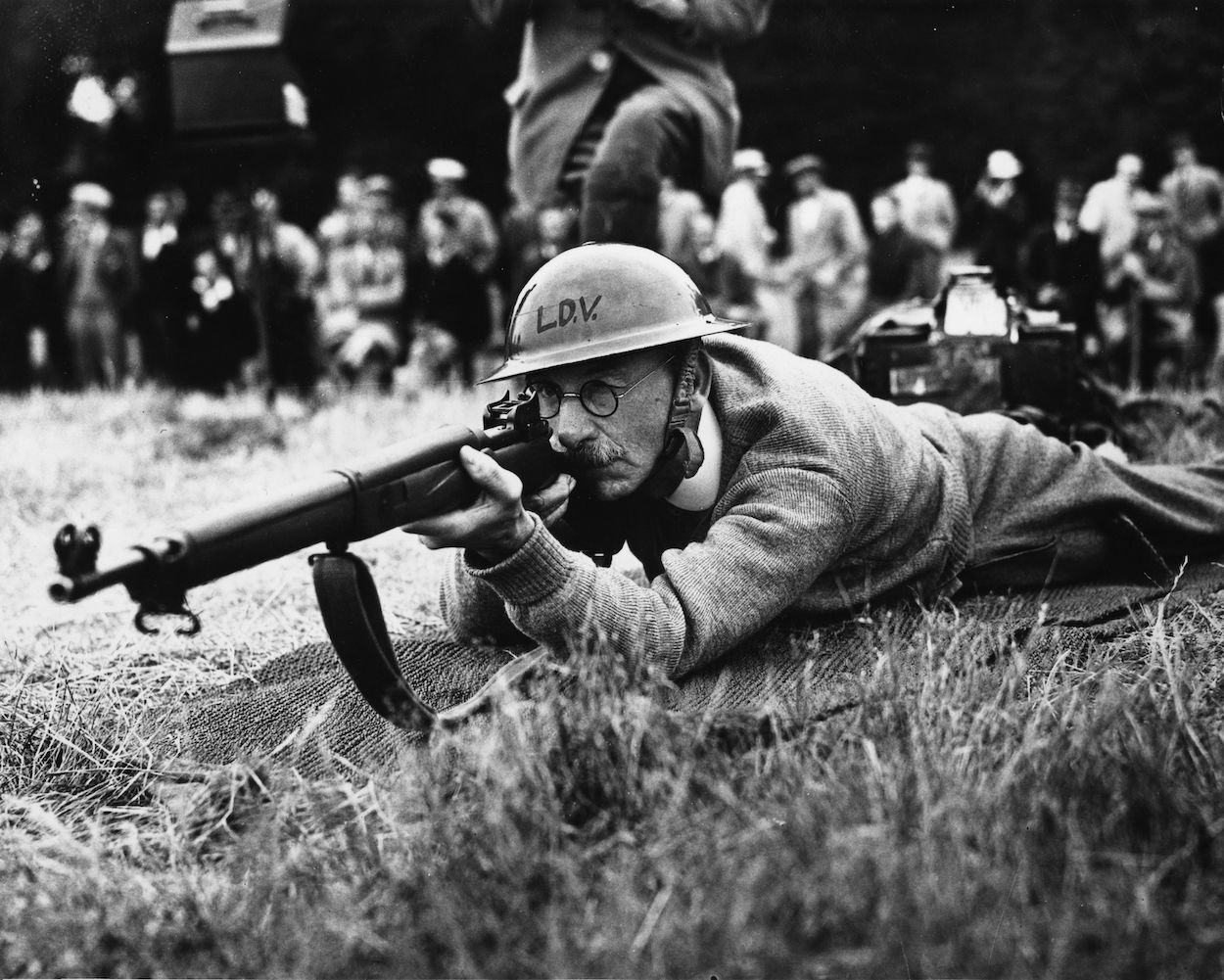When Rishi Sunak proposed national service for 18-year-olds as the first big idea of his election campaign, my initial thought was: absolutely, bring it on. But then I had a second thought, which was that if Sunak was trying to boost the Conservative vote, rather than the nation’s preparedness, his big idea probably wasn’t going to fly. Younger voters would recall their 18-year-old selves and reject the whole prospect out of hand – as would parents, concerned that their now not so little Harrys (and Hannahs) might be sent off to fight in Ukraine. Meanwhile, all those older people agreeing that the nation’s youth could do with some toughening up will probably be voting Tory anyway.
There are plenty of roles that our new pensioner recruit could usefully perform
Then a light switched on: right idea, wrong demographic. How about requiring first-year pensioners to follow the Rishi recipe for national service by spending either the full year with the military or a weekend a month volunteering for a good cause? Think about it. The rise in average life expectancy may be stalling, but at around 80 it is still a decade more than it was (69) in 1950, when national service was still compulsory. I bet a good number of today’s 67-year-olds will be at least as fit as 41-year-olds, the upper age limit during wartime conscription. Your average 67-year-old might not be up for commando training (though some might), but with obesity and anxiety and all that plaguing the young, the fitness gap between 18-year-olds and 67-year-olds might not be as wide as the military fears. Plus, keeping your average 67-year-old fitter with some daily square-bashing could be a useful end in itself and help reduce pressure on the NHS.
In this day and age, there are plenty of roles that our new pensioner recruit could usefully perform. Sunak mentioned training in cyber – well, you don’t need to carry a 25kg SAS backpack to do that. Nor to trawl the web for disinformation, nor to help the police ferret out criminally offensive messages in social media.
Along with the military and the police, Sunak mentioned the NHS and charities. There’s a dire shortage of care workers, and training up school-leavers or graduates to do the job takes time, if any of them want to do it at all, which is why it has become so much simpler to recruit people from abroad. But consider this: the training that many seniors will need for such national service would be minimal, as most will have seen it all before with their own families. They have what even the most enthusiastic 18-year-old volunteer lacks: life experience.
There could also be a case for national service in other sectors that habitually complain of a labour shortage. Take fruit-picking. Gnarled hands and creaking joints might fractionally slow the harvest down, but think of the savings. Farmers wouldn’t need to provide visas or on-site caravans, as many older people live in rural areas and have homes and cars.
All that said, national service for those – how shall I put it? – of a certain age would come with a complication that would apply less with 18-year-olds. What to do with those hospital consultants, senior civil servants, and successful business people whose pension pots are so large that they have no real need of the state pension and would cheerfully give up a year of it as the price of not taking part? If appeals to common decency failed, there would have to be penalties stringent enough to convince them to comply. A forfeit of five years’ state pension, perhaps, plus a fine proportionate to someone’s last salary, and the social media equivalent of public boards of dishonour in town squares, for naming and shaming.
There would obviously have to be a medical dispensation for those in poor health. But a new pensioner national service scheme could also address the problem of those who say age discrimination prevents them from getting a job. Those forced unwillingly into early retirement could perhaps do their national service early, or extend it for another year or two, in return for pay equivalent to the state pension.
There is just one drawback I can see to introducing national service for pensioners, and it is this. Many retirees soon settle into a life that is almost as busy as it was before. What with baby-sitting for the grandchildren, care for family and friends, volunteering for charities, sitting on community committees, joining governing boards, writing minutes, doing accounts – all of it unpaid – well, our new pensioners may not have time even for those 25 days a year.
Then again, sending out call-up papers to 66-year-olds at the same time they are informed that they will soon qualify for their state pension could have a salutary effect. First, it would demonstrate to all those angry youngsters that most of their elders are not lounging around all day sipping wine in their huge mortgage-free houses and planning their next cruise, even if some are.
More to the point, though, it would warn any government thinking about trying to squeeze more work out of a supposedly leisured older population just how difficult that might be. They have quite enough to do already. They are keeping their families, other people’s families, and a host of vital services afloat, They are filling gaps in the state, largely unsung (and unnoticed, until a paid job tips them a few pounds over the threshold for carer’s allowance). National service for the pension generation? By all means. Many, though, are already doing it, just without the recognition.







Comments
Comments will appear under your real name unless you enter a display name in your account area. Further information can be found in our terms of use.